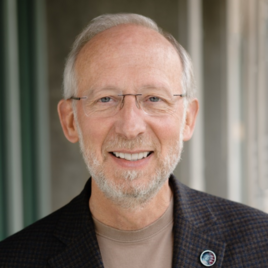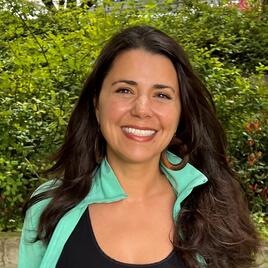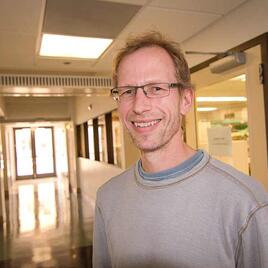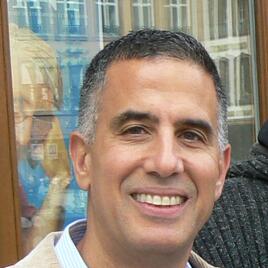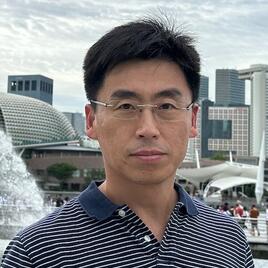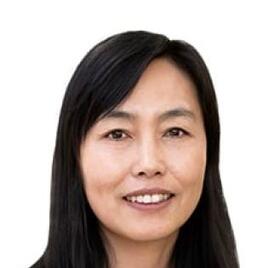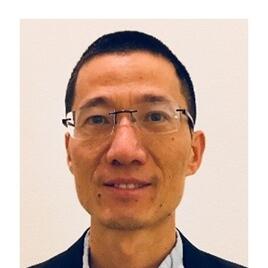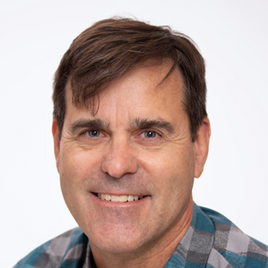
2nd annual RNA Symposium Speakers
2023 Keynote Lecture: Don W. Cleveland, PhD.
Distinguished Professor and Chair, Department of Cellular and Molecular Medicine, University of California, San Diego
2018 Breakthrough Prize in Life Sciences
Don Cleveland is Professor and Chair of Cellular and Molecular Medicine at UC San Diego He has been elected to the U.S. National Academy of Sciences and National Academy of Medicine. He has identified principles of genome instability in cancer, demonstrating that single chromosome missegregation can trigger repeated chromosome shattering (chromothripsis) that initiates and drives genome evolution in cancer. For this work, in 2019 he became the 15th recipient of India’s Genome Valley Excellence Award.
In neurosciences, he purified and characterized the first microtubule associated protein – tau – which misassembles in neurons in Alzheimer’s disease and chronic brain injury. He uncovered mechanisms underlying the major genetic forms of Amyotrophic Lateral Sclerosis (ALS) and developed “designer DNA drugs” for silencing disease-causing genes responsible for the major diseases of the nervous system, with clinical trials now ongoing in ALS, Parkinson’s, and Alzheimer’s diseases. For his efforts in neurosciences, he received the 2018 Breakthrough Prize in Life Sciences, the 2019 Sean M. Healey International Prize for Innovation in ALS, the 2022 Lalji & Family ALS Endowed Award for Innovative Healing, the 2022 E.B. Wilson Medal, and the 2023 Rainwater Prize.
Dr. Cleveland's achievement and honors
Dr. Cleveland's featured publications
Dr. don Cleveland Faculty Profile
Gloria Brar, PhD.
Associate Professor, Molecular and Cell Biology, University of California, Berkeley
Dr. Gloria Brar attended UC Berkeley as an undergraduate, after which she started graduate school at MIT in 2002 where she worked with Angelika Amon, studying the factors that drive the stepwise loss of chromosome cohesion that occurs during meiosis. Following completion of her PhD in 2008, she joined Jonathan Weissman's lab at UCSF. Dr. Brar was one of the first to use the ribosome profiling method to measure translation globally, applying it to a timecourse of meiosis and identifying many surprises in the process, including pervasive non-AUG initiation, uORF translation, and synthesis of short proteins.
In 2014, Gloria started her independent group in the MCB department at UC Berkeley, earning tenure in 2020. At Berkeley, the Brar lab has focused on uncovering the strategies that cells use to ensure successful gamete production. As one example, in partnership with the Ünal lab, they defined a previously overlooked mode of gene regulation that is common and produces previously unrecognized noncoding RNAs.
Dr. Gloria Brar Faculty Profile
Jens Lykke-Andersen, PhD.
Professor, Department of Molecular Biology, University of California, San Diego
Dr. Jens Lykke-Andersen received his Ph.D. from University of Copenhagen, Denmark in 1997. He was a postdoctoral fellow at Yale University Medical School before joining the faculty of MCD Biology at University of Colorado Boulder in 2001. He was named a Pew Scholar in 2003. He joined the Division of Biological Sciences at UCSD in 2009.
The Lykke-Andersen laboratory studies the mechanisms of regulation of translation and mRNA turnover in human gene expression. Research in recent years has revealed the importance of regulated mRNA translation and stability in the correct control of gene expression, and how its deregulation can lead to disease. Many of the general factors that direct mRNA translation and the enzymes that degrade mRNAs have been described in recent years. Our laboratory is interested in how these factors are differentially regulated on individual mRNAs to control their rates of translation and mRNA turnover, and how this is regulated by cell signaling.
Dr. Jens Lykke-Andersen Faculty profile
Dr. Lykke-Andersen lab website
Joseph Puglisi, PhD.
Jauch Professor Department of Structural Biology, Stanford University
Dr. Joseph (Jody) Puglisi is Jauch Professor and CZI Biohub Investigator in the Department of Structural Biology at Stanford University School of Medicine. His work focuses on the biophysical and structural analysis of RNAs and RNA-protein interactions and his group uses broad biophysical and biochemical methods to understand the interplay of structure and dynamics in a variety of systems, in particular translation. Born and raised in scenic New Jersey, he received a B.A. degree in Chemistry in 1984 from The Johns Hopkins University and a Ph.D. in Biophysical Chemistry from UC Berkeley in 1989 working with Ignacio Tinoco, Jr. After postdoctoral research in Strasbourg and MIT, he joined the faculty at UC Santa Cruz in Chemistry and Biochemistry in 1993. Dr. Puglisi moved to Stanford University in 1997, where he was Chair of the Department of Structural Biology from 2004 to 2014. He is a member of the US National Academy of Sciences.
Dr. Joseph Puglisi Faculty Profile
Yongsheng Shi, PhD
Professor & Chancellor’s Fellow, Department of Microbiology & Molecular Genetics
School of Medicine, University of California, Irvine
Dr. Yongsheng Shi received his B.S. in Molecular Biology from Nankai University, China in 1996, and his Ph.D. in Biology from Syracuse University in 2002. The Shi lab is broadly interested in post-transcriptional gene regulation and its role in stem cell biology and in virus-host interactions. Their current focus is on the mRNA 3' end processing. The 3' ends of most eukaryotic mRNAs are formed by an endonucleolytic cleavage and the subsequent addition of a string of adenosines. Interestingly, the transcripts of ~70% of genes in all eukaryotes have alternative 3' ends that are formed by cleavage/polyadenylation at different sites, a phenomenon called mRNA alternative polyadenylation (APA). APA not only expands the proteomic and functional diversity, but also plays important roles in gene regulation. Deregulation of mRNA 3' processing and APA have been implicated in a wide spectrum of human diseases. However, it remains poorly understood how poly(A) sites are recognized and how their recognition is regulated.
The goal of the Shi lab is to decipher the rules that govern poly(A) site choice, or the “polyadenylation code”, by using a combination of biochemical, genomic, and genetic approaches. Their studies aim to provide novel insights into the basic mechanisms of post-transcriptional gene regulation as well as its role in many physiological and pathological processes.
Dr. Yongsheng Shi Faculty Profile
Lili Wang, MD. PhD.
Associate Professor, Department of Systems Biology,
Beckman Research Institute, City of Hope National Medical Center
Dr. Lili Wang completed her medical education at China Medical University in Shenyang, China. She further pursued her PhD in Immunology from Tokai University in Japan. She received postdoctoral training in basic immunology and cancer biology at the University of Illinois at Chicago and Dana-Farber Cancer Institute at Boston. In 2012, she became her career as a junior faculty member at Harvard Medical School, later joining Beckman Research Institute at City of Hope in 2017.
During her time at Dana-Farber Cancer Institute, Dr. Wang utilized cancer genome sequencing approach to delve into the genetic landscape of chronic lymphocytic leukemia (CLL). Notably, she made a significant discovery by identifying the RNA splicing factor SF3B1 as one of the most recurrently mutated genes in this deadly disease. This breakthrough promoted her to focus on understanding how RNA splicing dysregulation contributes to oncogenesis. Through her research, she and her team have identified both splicing factor mutation-dependent and -independent RNA splicing dysregulation in CLL. Dr. Wang’s work has been published in prestigious journals such as the New England Journal of Medicine, Cancer Cell, Blood, JCI among others.
Yinsheng Wang, PhD
Distinguished Professor, Chemistry Department
University of California, Riverside
Dr. Yinsheng Wang received his PhD. degree from Washington University in St. Louis after obtaining his BS and MS degrees from Shandong University and Dalian Institute of Chemical Physics, Chinese Academy of Sciences, respectively. He is currently a distinguished professor and Donald T. Sawyer Endowed Founder’s Chair in Chemistry at the University of California Riverside. Dr. Wang's research involves the use of mass spectrometry, along with synthetic organic chemistry and molecular biology, for investigation about the occurrence and biological consequences of DNA damage as well as for the identification and functional characterizations of nucleic acid- and nucleotide-binding proteins. He has trained or in the process of training of over 90 PhD. students and post-doctoral fellows, and he has co-authored over 350 research articles.
Yinsheng was named as a fellow for the American Association for the Advancement of Sciences in 2012, and he was the recipient for the inaugural Chemical Research in Toxicology Young Investigator Award from the Division of Chemical Toxicology of the American Chemical Society (2012), the 2013 Biemann Medal from the American Society for Mass Spectrometry, the 2018 EAS Award for Outstanding Achievements in Mass Spectrometry, the 2020 RIVER award from the National Institute of Environmental Health Sciences, and the 2023 Founders Award from the ACS Division of Chemical Toxicology.
Dr. Yinsheng Wang Faculty profile
James Ellis, PhD
Senior Scientist, Developmental and Stem Cell Biology
SickKids Research Institute
Dr. Ellis completed his B.Sc. at McGill University and his PhD at the University of Toronto with Dr. Alan Bernstein developing retrovirus vectors for gene targeting. His post-doctoral fellowship studying the beta-globin Locus Control Region was mentored by Dr. Frank Grosveld in London, UK. Dr. Ellis established his own research team at The Hospital for Sick Children (SickKids) in Toronto in 1994 with a focus on gene therapy for sickle cell anemia. He subsequently developed MECP2 vectors for Rett syndrome, and vectors with reporter genes that mark specific cell types. For example, the EOS vectors express specifically in pluripotent stem cells and facilitate generation of patient induced pluripotent stem (iPS) cells.
Dr. Ellis’ research theme is to define disease mechanisms using gene delivery to reprogram and manipulate human stem cells. His team uses these cells to study post-transcriptional regulation of gene expression. They develop vectors with reporter genes that mark specific cell types, such as our EOS vectors that express highly in pluripotent stem cells but extinguish during differentiation. Their focus is on modeling Rett Syndrome, autism spectrum disorder, and Williams Beuren syndrome using patient specific induced pluripotent stem (iPS) cells. They phenotype the affected cells in vitro and interrogate potential disease pathways using chemical compound screens to identify candidate drugs that may have therapeutic utility.
The Ellis lab currently uses these iPS cells in collaborative research teams to model Rett syndrome, autism spectrum disorders, Williams Beuren syndrome, and cardiomyopathies. A new research direction concentrates on post-transcriptional regulation during human neurodevelopment.
